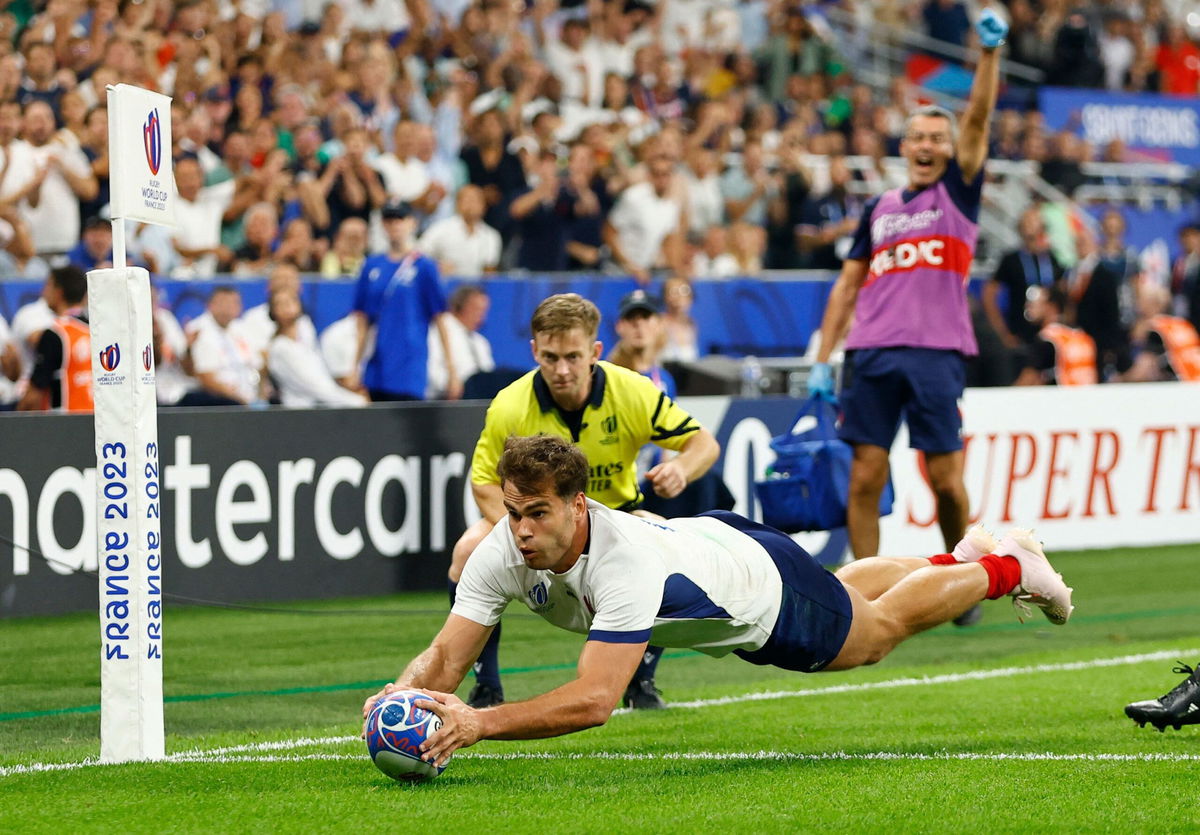To win a rugby game, focus on teamwork, strategy, and physical fitness. These three elements are key.
Rugby is a dynamic and physically demanding sport. Understanding the basics can make a big difference. Rugby is more than just strength; it’s about tactics, coordination, and endurance. Players need to work together, know their roles, and execute plans seamlessly.
A strong defense, quick offensive plays, and effective communication on the field are critical. This guide will cover essential tips and strategies to help you and your team secure a win. Whether you’re a novice or looking to refine your skills, these insights will boost your game. Let’s dive into the fundamentals of winning in rugby.
Preparation And Mindset
Preparation and mindset play crucial roles in winning a rugby game. Proper preparation ensures the team is physically ready. A strong mindset keeps the team focused and motivated. This combination sets the foundation for success on the field.
Team Motivation
Motivation is key to team success. Coaches should inspire players with powerful speeches. Highlight the importance of the game. Remind players of their goals and dreams. Encourage them to give their best effort.
Positive reinforcement boosts morale. Celebrate small victories during practice. Acknowledge individual progress and team achievements. This builds confidence and a winning attitude.
Pre-game Rituals
Pre-game rituals help set the mood for the game. These rituals can be simple or elaborate. Common rituals include team huddles and chants. These actions unify the team and build excitement.
Some players have personal rituals. This might involve listening to music or visualizing plays. These habits help players focus and calm their nerves. Encourage players to develop their own pre-game routines.
Ensure that rituals are positive and inclusive. Every team member should feel valued and involved. This fosters team unity and a sense of belonging.
Physical Conditioning
To win a rugby game, players need top physical conditioning. It forms the backbone of every successful team. This involves improving both strength and endurance. Let’s explore how these two aspects can be honed for better performance on the field.
Strength Training
Strength training is essential for rugby players. It helps them tackle opponents, run faster, and reduce injury risks. Consider the following exercises:
- Squats: Boost leg strength and power.
- Deadlifts: Improve back and core strength.
- Bench Press: Build upper body strength.
- Pull-Ups: Enhance arm and shoulder muscles.
Include these exercises in your routine. Aim for 3-4 sets of 8-12 reps. Consistency is key. Always focus on proper form to avoid injuries.
Endurance Building
Endurance allows players to sustain high performance throughout the game. It involves cardiovascular and muscular endurance. Here are some effective methods:
- Running: Regular runs of varying intensity.
- Interval Training: Short bursts of high-intensity activity followed by rest.
- Circuit Training: Combine different exercises with minimal rest.
- Swimming: Low-impact exercise that builds stamina.
Track your progress to ensure improvement. Use a mix of these exercises to avoid monotony. Proper rest and recovery are crucial in endurance training.
By focusing on strength training and endurance building, rugby players can enhance their physical conditioning. This prepares them to perform at their best and win games.
Technical Skills
To win a rugby game, mastering technical skills is crucial. These skills include ball handling and tackling techniques. Both are essential for creating successful plays and defending against opponents. Let’s explore these skills in detail.
Ball Handling
Good ball handling is vital in rugby. It helps maintain possession and execute plays. Players must practice passing accurately. A short, quick pass can outmaneuver defenders. Long passes, thrown with precision, stretch the defense.
Catching the ball is just as important. Always keep your eyes on the ball. Use both hands to secure it. A dropped ball can lead to turnovers. Practice catching under pressure. This simulates real game situations.
Running with the ball requires control. Hold the ball firmly against your body. This reduces the chance of losing it. Use sidesteps and changes in pace to dodge defenders. These moves create opportunities for your team.
Tackling Techniques
Tackling is a key defensive skill. A good tackle stops the opponent’s advance. Aim to hit low, around the waist or thighs. This approach is safer and more effective.
Always keep your head to the side. Never lead with your head. This prevents injuries. Wrap your arms around the opponent securely. Drive with your legs to complete the tackle.
Practice different tackling techniques. Side tackles, front-on tackles, and chop tackles each have their place. Knowing which to use in different situations improves your defensive game.
Communication is important in defense. Call out to your teammates. Let them know where the opponents are. This coordination leads to stronger team defense.

Credit: wucardinals.com
Strategic Planning
Strategic planning is essential for winning a rugby game. It involves deciding how your team will play both offensively and defensively. Good strategies can make a big difference in the outcome. Your plan should be clear, simple, and easy for everyone to understand. Let’s explore some key tactics and formations.
Offensive Tactics
Effective offensive tactics help your team score points. One key tactic is to spread the defense. This creates gaps for your players to run through. Use quick passes to move the ball. Fast ball movement confuses the defense. Another tactic is to use dummy runners. These players pretend to take the ball, distracting defenders. This opens up space for other players.
Set plays are also important. Practice them until everyone knows their role. Set plays can be used during scrums, lineouts, and rucks. They create opportunities to advance the ball. Always look for weak spots in the opponent’s defense. Attack these areas to gain an advantage.
Defensive Formations
Strong defensive formations prevent the other team from scoring. One common formation is the flat line defense. In this formation, players line up across the field. They move together to stop the opposing team’s advance. It is simple but effective.
Another formation is the drift defense. This involves players moving sideways as a unit. They force the attackers towards the sideline. This limits their options and makes it easier to tackle them. Communication is key in any defensive formation. Players should talk to each other and stay aware of their positions.
Practice these formations regularly. Good defense can win games as much as a strong offense. Always stay focused and be ready to adapt to the situation.
Game Analysis
Game Analysis is crucial to winning a rugby game. It helps teams understand their strengths and weaknesses. By studying opponents and analyzing past games, teams can improve their strategies and gameplay.
Studying Opponents
Understanding your opponent’s tactics is essential. Watch their previous matches. Note their strong points and weak points. Focus on their key players. What are their best moves? What are their weaknesses?
Create a table to organize your observations:
| Opponent’s Strengths | Opponent’s Weaknesses |
|---|---|
| Strong passing game | Poor defense on the left side |
| Fast wingers | Weak scrum |
Use this information to develop a game plan. Target their weaknesses. Avoid their strengths. This can give you a strategic advantage.
Analyzing Past Games
Reviewing your past games helps identify areas of improvement. Watch the game recordings with your team. Discuss what went well and what did not. Make a list of key takeaways:
- Successful strategies
- Mistakes to avoid
- Areas needing improvement
For example, if your team struggled with ball handling, practice drills focusing on this skill. If your defense was weak, work on defensive formations and tactics.
Combine these insights with your opponent’s analysis. This comprehensive approach can help refine your overall strategy. Remember, continuous improvement is key. Keep analyzing and adapting your game plan.

Credit: ktvz.com
In-game Adaptability
Winning a rugby game demands more than just strength and speed. Teams must adapt in real-time to stay ahead. In-game adaptability is crucial. It involves adjusting to new situations and making quick decisions. The ability to read the field and adjust tactics can turn the game in your favor.
Reading The Field
Players should constantly scan the field. They need to notice the positioning of opponents and teammates. Understanding the flow of the game helps in predicting the opponent’s moves. This awareness lets players anticipate and counter threats. Communication among team members enhances this skill. Calling out observations keeps everyone informed and ready.
Adjusting Tactics
Flexibility in tactics is essential. Sticking to a rigid game plan can be a downfall. Players must be ready to switch strategies based on the game’s progress. If the opponent’s defense is strong, consider a different attacking approach. Sometimes, a defensive play can create scoring opportunities. Coaches play a big role here. They should provide guidance and suggest changes during breaks.
Quick adjustments can catch opponents off guard. Making these changes in real-time keeps the team dynamic and unpredictable. Always be prepared to revise tactics as the game unfolds.
Team Dynamics
Rugby is more than just physical strength and speed. Team dynamics play a crucial role in winning. A team must work together seamlessly. Effective communication and building trust are key components. Let’s explore these aspects.
Effective Communication
Effective communication is the backbone of any successful rugby team. Clear, concise, and timely communication can make a significant difference on the field.
- Verbal communication: Use short and clear commands.
- Non-verbal communication: Body language and hand signals are vital.
- Listening skills: Everyone must listen actively to each other.
Players must understand their roles and responsibilities. This understanding comes from practice and clear communication. Regular team meetings and feedback sessions can improve communication skills. Encourage open discussions and address any misunderstandings promptly.
Building Trust
Trust is the foundation of a strong rugby team. Without trust, team dynamics fall apart.
- Consistency: Players must consistently perform their roles.
- Support: Team members should support each other on and off the field.
- Honesty: Be honest about strengths and weaknesses.
Trust is built over time through shared experiences and mutual respect. Celebrate small victories together. Address conflicts constructively and maintain a positive team culture. Trust enables players to rely on each other during critical moments of the game.

Credit: www.scmp.com
Post-game Recovery
Rugby is a physically demanding sport. After a game, proper recovery is crucial. It helps players restore energy and repair muscles. Effective recovery can prevent injuries and improve future performance.
Cool Down Exercises
Cool down exercises are essential after a rugby game. They help reduce muscle stiffness and soreness. Start with light jogging for five to ten minutes. Follow it with stretching major muscle groups. Focus on legs, back, and shoulders. Gentle stretching improves flexibility and circulation.
Another great cool down exercise is foam rolling. It helps release muscle tension. Roll slowly over each muscle group. Spend extra time on tight or sore areas. Cool down exercises speed up recovery and prepare the body for the next game.
Mental Recovery
Mental recovery is as important as physical recovery. After a game, players might feel mentally drained. Taking time to relax and unwind is crucial. Engage in activities that promote relaxation. Reading, listening to music, or taking a walk can help. It is important to disconnect from the intensity of the game.
Another way to aid mental recovery is meditation. Meditation helps reduce stress and anxiety. Even five minutes of deep breathing can make a difference. Consistent mental recovery practices improve focus and overall well-being.
Frequently Asked Questions
What Are The Basic Rules Of Rugby?
Rugby involves two teams trying to score by carrying or kicking the ball. The game is played on a rectangular field with goalposts. Key rules include no forward passing and tackling below the shoulders.
How Can I Improve My Rugby Skills?
To improve, practice regularly, focus on fitness, and understand the game’s strategies. Watch professional matches and learn from experienced players.
What Is The Role Of A Scrum In Rugby?
A scrum restarts play after minor infractions. Eight players from each team interlock and push to gain possession of the ball.
How Important Is Teamwork In Rugby?
Teamwork is crucial in rugby. Success depends on effective communication, trust, and coordinated efforts among players. Each player has a specific role.
Conclusion
Winning a rugby game requires teamwork, strategy, and dedication. Focus on strong defense. Execute your game plan with precision. Stay fit and practice regularly. Communication on the field is key. Learn from every match, win or lose. Support your teammates and trust each other.
Keep improving your skills. Remember, every game is a learning opportunity. Enjoy the sport and play with passion.


